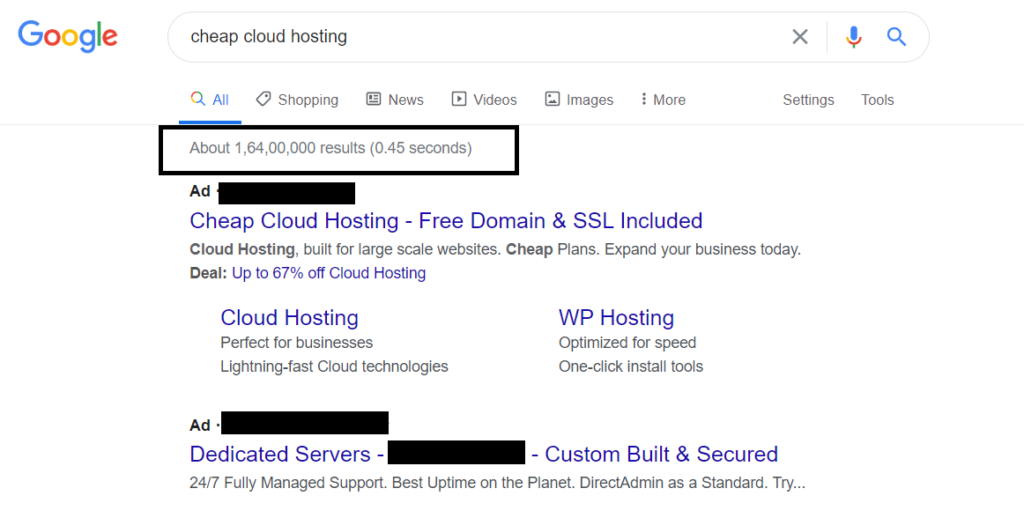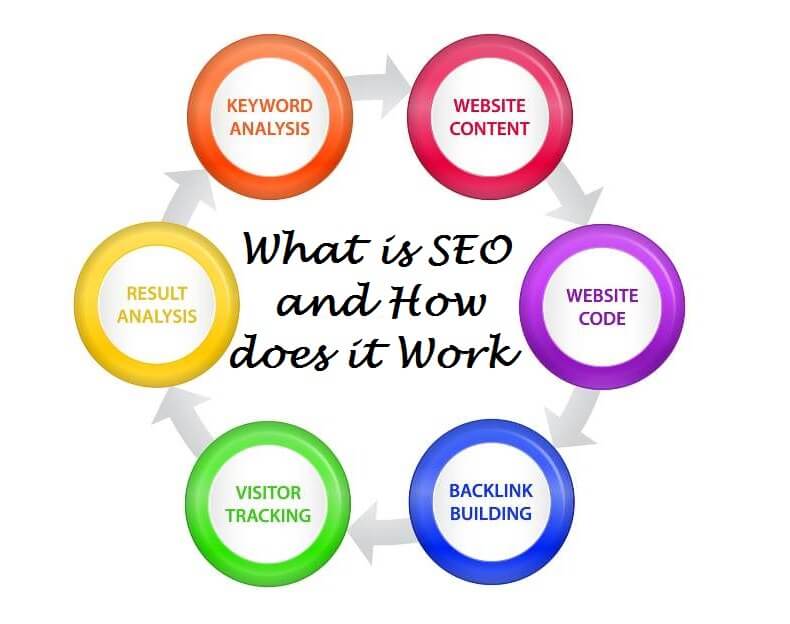Search engine optimization ( SEO) means guided traffic from a search engine’s ( Google, Yahoo, Bing) organic ranks on a website. SEO’s everyday tasks involve high-quality content creation, optimizing content around unique keywords, and building quality backlinks.
In other words, the following:
SEO is concerned with improving a site’s rankings in the organic (not paid) portion of the search engine results.
SEO helps to boost the organic rating of a site or on-page SEO for optimizing a specific page.
The most significant advantage of rating a specific keyword is that you will get “free” traffic to your website every day.
How Search Engines Work
Now is the time to learn how search engines such as Google work.
If you’re looking for something in Google (or any other search engine), an algorithm operates real-time to give you the best search result.
In particular, Google searches its “hundreds of trillions” indexed pages to find a collection of results that will best respond to your search.
Why does Google determine the best outcome?
While Google doesn’t publicize its algorithm internally based on patents and statements submitted by Google, we know websites and web pages are categorized based on:
Significance
If you are looking for “cheap cloud hosting,” you don’t want to see the cheap domains in a search result.
That is why Google sees sites that are closely connected to your keyword, first and foremost.
But Google doesn’t just list “the most important sites.” It is because any search word includes thousands (or even millions) of similar pages.
For example, the keyword “cheap cloud hosting” brings up almost 17 million results in Google:

Search Engines use three main components in their algorithm to place the results in an order that ranks best:
Authority
Authority is just as it sounds: Google decides if the content is reliable and trustworthy.
The question is: how does Google know if a page is valid?
The answer is simple. Google checks the list of other websites connected to that page. Links to other sites are referred to as “backlinks.” The more backlinks a page has, the higher it ranks. ( But this is not the only case as many other factors rank pages higher ).
Usefulness
Content may be authoritative and essential. But if it’s not useful, Google won’t place this content at the top of the search results.
Google has said publicly that “higher quality content” is distinct from “useful” content.
For example, let’s say that you search for “SiteGround Review” The first link you click will undoubtedly be written by the world’s leading web hosting, an expert on a high authority site. And as the article contains quality content, many will link to it.
The content is, however, a little unorganized. And it’s full of jargon that most people don’t grasp it.
Compare this with a particular outcome (“link 2nd on search page”).
A relatively new person writes on a “SiteGround Review,” and their website has fewer backlinks than the number 1 ranked site.
Their content is, however, divided into separate parts. And it’s written in a way everyone can understand.
Ok, this page should be high on the “usefulness” scale. However, if link 2nd does not have as much trust or authority as link 1st, Google will still rank it well due to its content quality.
(It can be even higher than outcome [link 1st])
Google tests value mainly based on “User Experience Signals.”
In other words, how users communicate with the results of the search. When Google finds that people are interacting more with a particular website, it will significantly increase its ranking.
How SEO Works
SEO operates by optimizing your website for search engines, whether it’s Google, Bing, or YouTube.
In particular, your role is to ensure that a search engine sees your site as the best result for a person’s search.
Search Engine Algorithm like Google decides the best result based on quality content, backlinks to that particular page, the website’s loading speed, mobile-friendliness, User experience, secure site, etc.
(For example, Google has thousand of algorithm ranking factors, but remember that content and backlinks remain the top factor. With each Google update content gets more relevance).
In most cases, when people think of ‘optimizing a website,’ they think of Google SEO. Also learn how to optimize your nonprofit website for SEO.
